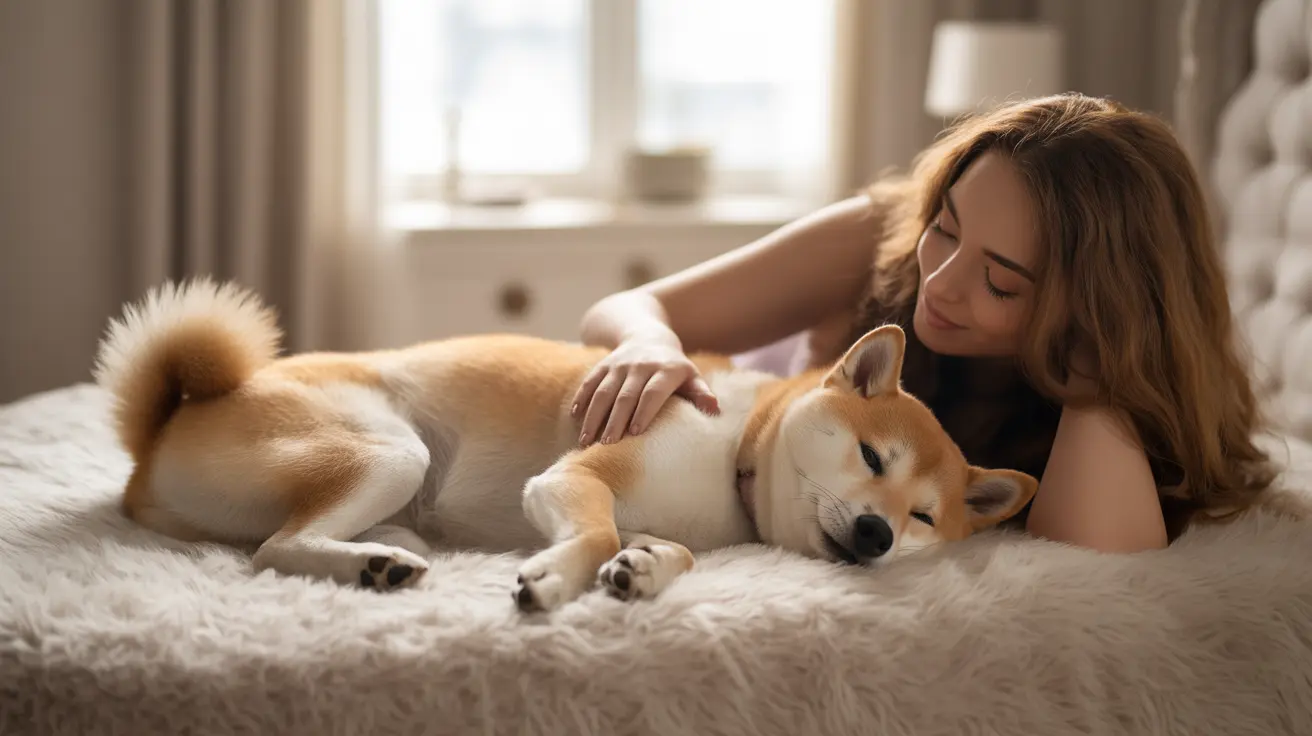If you've ever wondered whether your furry friend genuinely enjoys sharing your bed, you're not alone. Scientific research has shown that dogs often have a strong preference for sleeping with their owners, a behavior deeply rooted in their pack mentality and strengthened through domestication.
Understanding why dogs like sleeping with their owners involves exploring both their ancestral instincts and the modern human-animal bond. Let's dive into the fascinating science behind this common behavior and discover what makes co-sleeping so appealing to our canine companions.
The Natural Pack Instinct
Dogs are descendants of wolves, and this heritage plays a crucial role in their sleeping preferences. In the wild, pack animals sleep together for warmth, protection, and social bonding. Your domestic dog still carries these instincts, viewing you and your family as their modern-day pack.
When your dog chooses to curl up next to you at night, they're following an ancient behavioral pattern that's been reinforced through thousands of years of domestication. This natural inclination helps explain why many dogs actively seek out their owner's bed, even when they have comfortable alternatives available.
The Emotional Benefits of Co-Sleeping
Research has shown that sleeping with their owners provides significant emotional benefits for dogs. The close proximity during sleep helps strengthen the bond between dogs and their human companions, reducing anxiety and promoting a sense of security.
Dogs who sleep with their owners often display higher levels of trust and attachment, which can be particularly beneficial for rescue dogs or those with anxiety issues. The nighttime closeness helps reinforce their position in the family unit and provides comfort during vulnerable sleeping hours.
Physical and Physiological Effects
The benefits of co-sleeping extend beyond emotional comfort. Studies have documented fascinating physiological responses when dogs sleep with their owners, including synchronized heartbeats and breathing patterns. This synchronization can have a calming effect on both the dog and their human companion.
Additionally, research has shown that dogs experience different sleep patterns when near their owners, often achieving deeper, more restful sleep. This suggests that the presence of their trusted human actually improves their sleep quality.
When Co-Sleeping May Not Be Ideal
While many dogs enjoy sleeping with their owners, it's important to recognize that this arrangement isn't suitable for every dog or household. Some dogs may prefer their own space due to temperature sensitivity, anxiety, or individual personality traits.
Consider your dog's specific needs, age, and health conditions when deciding on sleeping arrangements. Some dogs might benefit more from sleeping in their own bed while still maintaining proximity to their owners.
Frequently Asked Questions
Do most dogs actually like sleeping with their owners, or would they prefer their own bed?
Research indicates that most dogs naturally prefer sleeping near or with their owners due to their pack instincts and the security it provides. However, individual preferences can vary based on personality, past experiences, and training.
What are the main benefits of letting your dog sleep in your bed, and are there any health risks?
Benefits include strengthened emotional bonds, reduced anxiety, and improved sleep quality for both dogs and owners. However, potential risks include sleep disruption, allergies, and the transmission of parasites if proper hygiene isn't maintained.
Can sleeping with my dog help reduce anxiety or separation anxiety for either of us?
Yes, co-sleeping can help reduce anxiety in both dogs and humans. The physical proximity increases oxytocin levels and provides mutual comfort, potentially helping with separation anxiety during daytime hours.
How can I make sure both my dog and I get a good night's sleep when sharing a bed?
Establish a consistent bedtime routine, ensure your bed is large enough for comfortable sharing, maintain regular grooming practices, and consider using a pet bed or mat on top of your bed for cleanliness.
Are there certain breeds or temperaments that are better suited to co-sleeping with their owners?
While any breed can adapt to co-sleeping, smaller to medium-sized dogs with calm temperaments typically make better bed partners. Dogs with independent personalities might prefer their own sleeping space.
Conclusion
The science clearly shows that most dogs do indeed enjoy sleeping with their owners, driven by both instinctual and emotional factors. This natural behavior can strengthen the human-animal bond and provide mutual benefits for both parties when approached thoughtfully and with consideration for individual needs and preferences.






